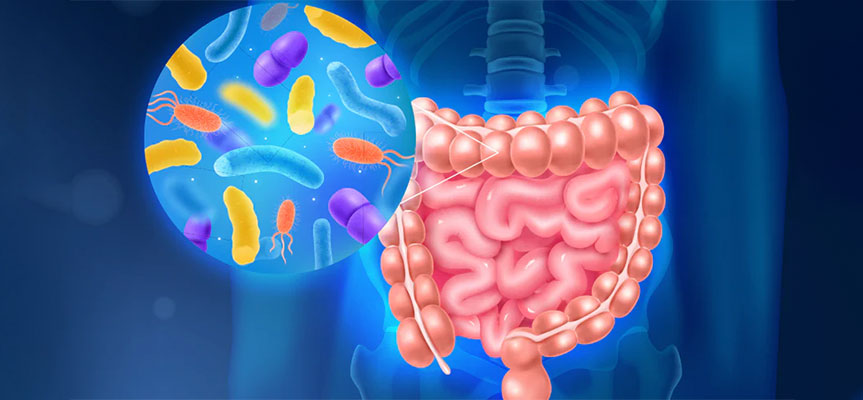Probiotics are beneficial microorganisms that provide health benefits to their host. The human body relies on various microorganisms to function properly and maintain overall health, and probiotics play a crucial role in this process. They support digestive health from the mouth to the intestines and help control harmful microorganisms. When present in sufficient quantities, probiotics aid digestion and enhance nutrient absorption.
Read more: Probiotics
Probiotics and Digestion
Probiotics are believed to help alleviate multiple digestive issues, including:
- Constipation
- Inflammatory Bowel Disease (IBD)
- Irritable Bowel Syndrome (IBS)
- Lactose Intolerance
- Ulcerative Colitis
- Diarrhea
Important Considerations About Probiotics
1. Gut Ecosystems Vary
Individuals with constipation may have different gut microbiomes compared to those without digestive issues.
2. They Lower pH Levels
Probiotics reduce pH levels in the colon, which may help promote faster bowel movements.
3. They May Reduce Antibiotic-Associated Diarrhea
Probiotics can be effective in reducing diarrhea linked to antibiotics and Clostridium difficile infections by replenishing beneficial bacteria that antibiotics might destroy.
4. They Aid in Protein Absorption
Probiotics improve the absorption of dietary proteins as well as other vitamins and nutrients.
Read on: Microbiome
Safe Strains of Probiotics
Not all probiotics offer the same benefits. More research is needed to understand the advantages of different strains. The majority of studies focus on Lactobacillus and Bifidobacterium strains, including:
- Lactobacillus acidophilus
- Lactobacillus casei
- Lactobacillus plantarum
- Bifidobacterium lactis
- Bifidobacterium longum
- Bifidobacterium bifidum
Probiotic strains outside these categories may require further study before they can be deemed safe. Since probiotics are consumed orally, their effectiveness depends on their ability to survive the highly acidic stomach environment and reach the intestines, where nutrient absorption occurs. High-quality probiotics pass through the stomach intact and reach the intestines effectively.

How to Use Probiotics for Digestive Health
To maximize the benefits of probiotics, consider increasing daily intake through fermented foods or supplements. Traditional fermented foods naturally contain probiotics and are consumed worldwide. These include:
- Sauerkraut
- Kimchi
- Kefir
- Yogurt
- Kombucha
Key Considerations for Probiotic Consumption
1. Gradually Increase Dosage (CFU Count)
Recommended daily doses range from 1 billion to 10 billion colony-forming units (CFU). Start with the lowest dose and gradually increase while monitoring the body’s response. Kefir contains 15-20 strains of probiotics per cup, while supplements list their CFU count on packaging.
2. Seek Professional Advice if You Are a First-Time User
If fermented foods are new to your diet, consult a healthcare professional for guidance on suitable options.
3. Consume at Optimal Times
Take probiotics just before or with meals, but avoid consumption after meals.
4. Prioritize Natural Probiotics Over Supplements
Although probiotic supplements are available, natural sources are often more beneficial. Fermented foods contain diverse strains, whereas supplements typically contain a single strain.
Research and Benefits
Studies indicate a positive correlation between probiotic consumption and digestive health in individuals of all ages. A well-functioning digestive system contributes to better mental health, oral health, immune function, and potentially healthier skin.


